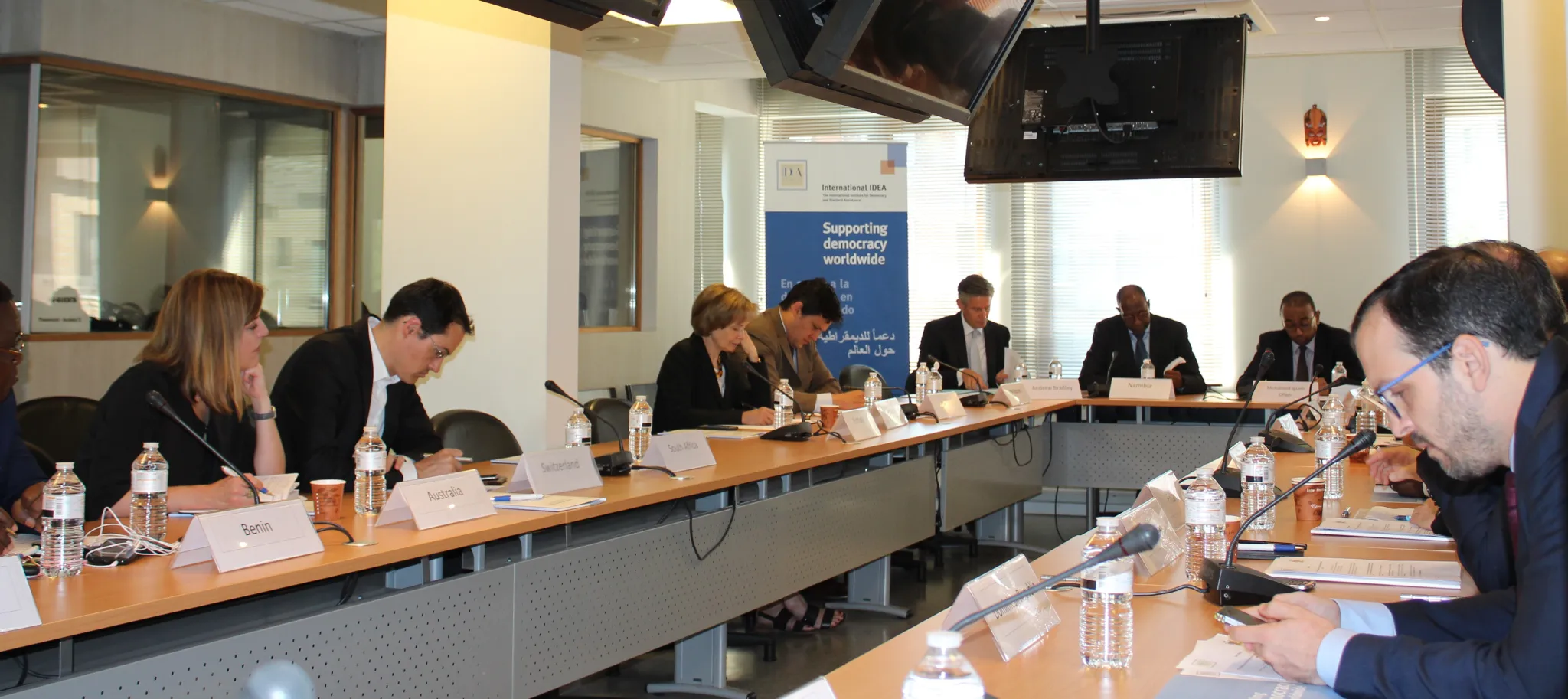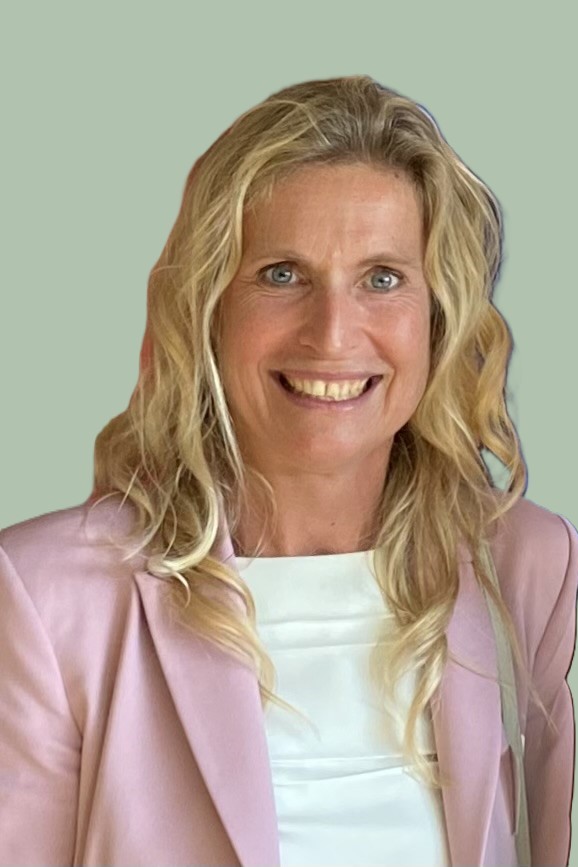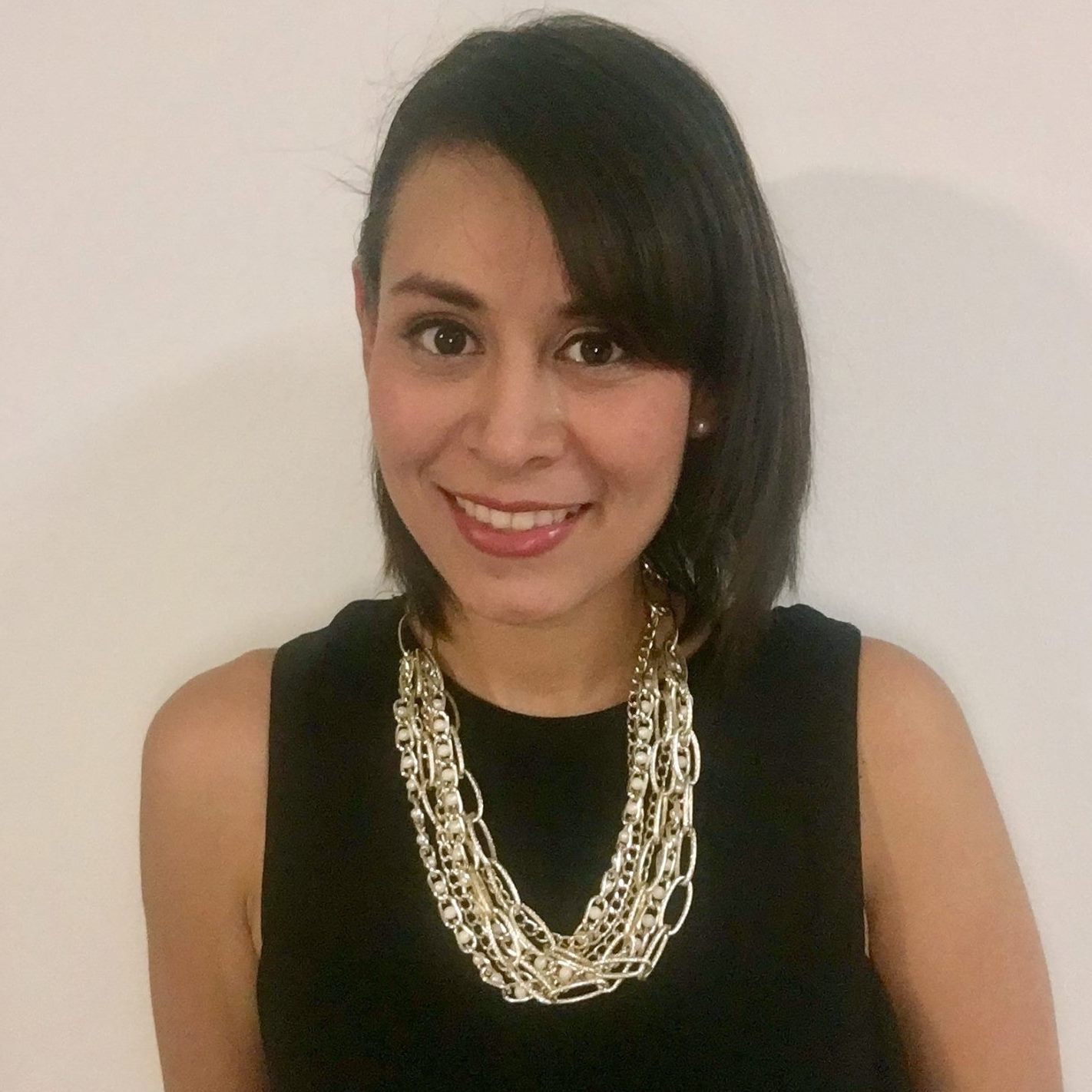Representatives of International IDEA Member States discuss the role of Europe in a changing geo-political landscape

At a Meeting of Representatives of International IDEA Member States in Brussels, participants engaged in an interactive debate on the role of the European Union in a changing geo-political landscape and the future of liberal democracy. The meeting was hosted by the Permanent Mission of the African Union to the European Union and the African, Caribbean and Pacific Group of States on 29 June 2018.
The meeting was chaired by H.E. Dr. Kaire Munionganda Mbuende, Ambassador of Namibia to Belgium, the Netherlands, Grand Duchy of Luxembourg and Head of the Mission to the European Union. Ambassador Mbuende also serves as Local Chair of the International IDEA Council of Member States. The Office of International IDEA to the European Union organizes Member States meetings for representatives in Brussels on a bi-annual basis to discuss contemporary topical issues, promote Member States ownership of the Institute, and present the Office work programme for discussion.
Participants from 20 Member States of International IDEA were welcomed by Mr. Mohamed Igueh Ofleh, Deputy Head of Mission of the African Union to the European Union (EU) and African, Caribbean and Pacific (ACP) Group of States, who presented a brief overview of the democratic governance-related work of the African Union, and existing collaboration between the African Union Commission and International IDEA.
In his opening remarks, Ambassador Mbuende acknowledged the presence of a representative of Panama, a new Member State of International IDEA. He framed the objectives of the meeting and provided a reflection on the need for democracy to deliver results in terms of inclusive and sustainable economic development. The invited guest speaker was Professor Luk Van Langenhove, who is the Academic Director at the Institute for European Studies at the Vrije Universiteit Brussel. He provided some insights on “The future of the liberal world order and the fate of Europe”.
Professor Van Langenhove outlined several challenges that confront the European Union internally and externally: resilience of democratic norms, economic and financial challenges, migration and refugee crises, terrorism and radicalization, Brexit, climate change, and the rise of new powers. Four key trends were emphasized: i) the increasing decline of Europe’s economic power and Eastwards shift; ii) the demographic decline in Europe, which results in a growing shortage of labour and more social challenges; iii) challenges to democratic and human rights values and norms, and the growth of illiberal democracies; and iv) growing national and populist movements.
Professor Van Langenhove advocated for a strong European Union, leading the way for European nations, regions and local governments to preserve the liberal world order. He called for the creation and enhanced promotion of a common European identity, including a broader understanding and respect of common European values, that could assist in addressing EU democratic deficits, illusion of nation-state sovereignty, and the possible EU disintegration risk. For the EU project to regain public support and trust, he recommended a revision of inefficient EU legislation and frameworks, and improved communication with citizens to explain and outline complex institutional arrangements.
According to Professor Van Langenhove, European integration can only be successful when the EU addresses democratic deficits, including enhanced transparency, directly accountable decision-making, and more self-determination on budgetary matters. He also called for the positive use of new ICT, including Blockchain Technologies and Artificial Intelligence to give political control back to citizens.
The presentation was followed by a discussion, focusing on the importance of transatlantic relations, revision of the EU ambition to become a global actor, and populism. To this end, the eradication of poverty, strengthening of multilateral cooperation, dialogue with new rising powers, and promotion of democratic engagement at the local level, were mentioned. The representative of Canada highlighted the importance of protecting liberal democracy, and referred to two speeches on liberal democracy by the Canadian Minister of Foreign Affairs, Ms. Chrystia Freeland.
Ambassador Mbuende shared information on the priorities and activities of the Namibian Chair of the International IDEA Council of Member States in 2018, with a special focus on the organization of the Annual Democracy Forum in Windhoek, Namibia, which will take place in November 2018. The Ambassador also underlined his continuous support, and that of his staff, to the Office of International IDEA to the EU, by sustaining its programme and activities throughout the Namibian Chairship in 2018.
Andrew Bradley, Director of the Office of International IDEA to the EU, presented the activity report and planning of the Office for 2018, with a special focus on the implementation of the International IDEA Strategy 2018-2022 and past achievements. General and recurrent activities of the Office consist of bi-annual meetings with representatives of International IDEA Member States in Brussels (the second meeting of 2018 will take place in December), the co-organization and participation in the International Day of Democracy 2018 conference, taking place in Brussels on 18 September 2018, resource mobilization efforts, participation in conferences, seminars, and meetings to improve the impact and visibility of the Office, and enhanced advocacy efforts with regard to the inclusion of democracy in EU policy initiatives.
The programmatic activities of the Office for the remainder of 2018 include, Equality as a vector for accountable governance, with an initiative on women empowerment and measurement mechanisms; Representation and participation of young people, with a project on the 2019 European Parliament elections; European political parties, with a study on the political impact of European political parties; Political dialogue, with an undertaking on the 12th ASEM Summit; and Supporting democracy through EU development assistance, with activities related to EU political dialogue with third countries and the post-Cotonou negotiations between the EU and the ACP Group of States.
Meeting of Representatives of International IDEA Member States

Photos: Diana Navarrete – International IDEA





